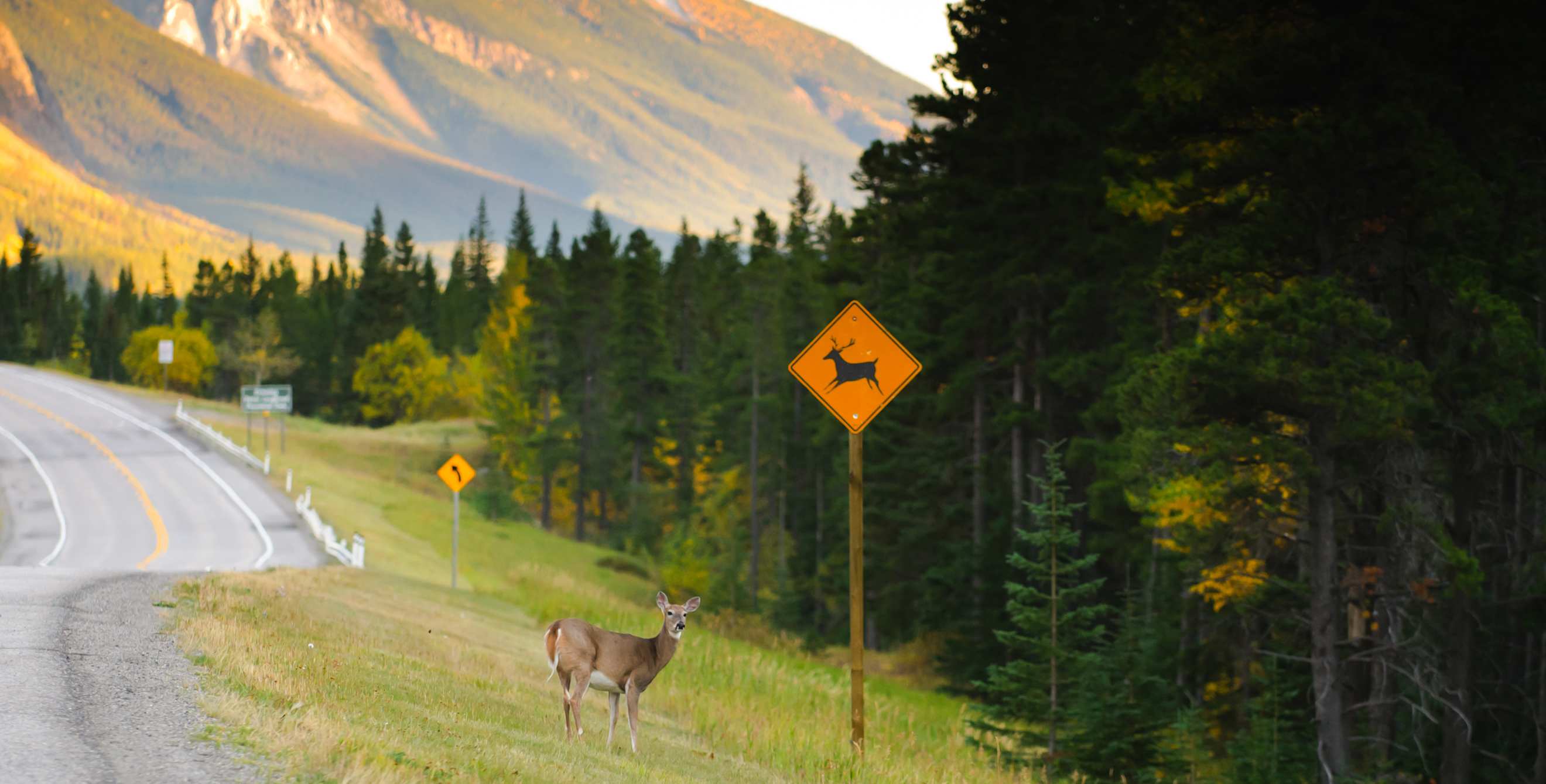How to Avoid Deer and Other Animals on the Road
Follow these 9 safety tips to help prevent an animal collision.

During deer season, which generally runs from October through December, there is a dramatic increase in the movement of the deer population. Many deer find their way onto highways and into suburban neighborhoods. As a result, more deer-vehicle collisions occur in this period than any other time of year.
While any animal on the road can be dangerous, according to the Insurance Institute of Highway Safety, there are more than 1.5 million deer-vehicle collisions each year, resulting in 150 human deaths and tens of thousands of injuries.
Although deer and other animals are unpredictable, there are actions you can take to help prevent an accident or reduce the damage from an animal collision.
Tips to Avoid an Animal Collision
1. Keep your eyes moving back and forth. Continuously sweep your eyes across the road for signs of animals. While the most likely accident is caused by an animal darting in front of you, one might also run into the side of your car.
2. Be especially attentive in early morning and evening. Many animals, especially deer, are most active during prime commuting hours—roughly 5 a.m. to 8 a.m., and 5 p.m. to 8 p.m.
3. At night, use high beams when there’s no oncoming traffic. Your brights can help you spot animals sooner. The light reflecting off their eyes may also reveal their location.
4. Slow down, and watch for other deer to appear. Deer rarely travel alone, so if you see one, there are likely to be one or more nearby.
5. Honk your horn with one long blast. A long blast on your horn may frighten large animals, such as deer, away from your vehicle. The Insurance Information Institute advises against relying on devices such as deer whistles and reflectors, which have not been proven to reduce collisions with animals.
6. Use brakes if impact is imminent. If an animal is in your path, stay in your lane. Swerving away from animals can confuse them so they don’t know which way to run. It can also put you in the path of oncoming vehicles or cause you to crash into objects on the side of the road.
7. Always wear a seatbelt. According to the Insurance Information Institute, the chances of getting injured when hitting an animal are much higher if you don’t have your seatbelt on.
8. Don’t go near a wounded animal. A frightened and wounded animal can be unpredictable. If it’s in the middle of the road and blocking traffic, call the police immediately.
9. Consider purchasing comprehensive coverage, if you don’t already have it as part of your insurance policy. Comprehensive insurance covers animal collisions, among other things.
Exceptional coverage. Expert service. Extra savings.
AAA Auto, Home, and Life Insurance